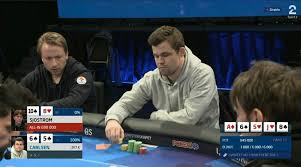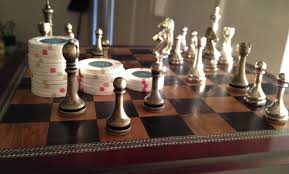The Crossover Between Chess and Poker
Many accomplished chess players have transitioned into poker, either as a relaxing hobby or a significant income source. Notable examples include Alexander Grischuk and Peter Svidler, both of whom reached peak world chess rankings of third and fourth, respectively, and have made their mark in the poker world. Grischuk has participated in the WSOP multiple times, while Svidler enjoys cash games. Additionally, Women’s Grandmaster Jennifer Shahade boasts over ₱17,170.05k in live poker tournament winnings, alongside two US Women’s Chess Championships. The crossover between these two intellectual games is also evident among poker authors, such as Dan Harrington and Bob Ciaffone, who have explored both chess and poker in their writings.swerte99
Understanding the Core Differences
The most apparent difference between chess and poker, aside from the pieces and cards used, lies in the amount of information accessible to players. In poker, strategy is heavily influenced by the uncertainty surrounding your opponents’ hands. In contrast, chess offers full visibility of every piece on the board. This fundamental distinction might make poker seem less appealing to dedicated chess players at first glance, but there are fascinating similarities worth exploring.swerte99
Complexity in Numbers: Chess vs. Poker
Both games involve vast numerical complexities. In chess, when starting as White with a move like 1.e4, you can influence the game’s direction, but your opponent still has countless possible responses. After just three moves by each player, there can be up to 121 million different board configurations. Conversely, in poker, the dealer’s shuffled deck creates a unique arrangement of cards due to the approximately 52-factorial (52x51x50x…) possible combinations, resulting in about 8 followed by 67 zeros. This sheer scale of possibilities in both games underscores their depth and complexity.swerte99
The Role of Bluffing in Strategy
Bluffing, a central feature of poker, revolves around the partial information aspect of the game. While it seems absent in chess, there are nuanced parallels. A chess player might make a seemingly suboptimal move to create confusion or ambiguity, potentially inducing an opponent to make mistakes. This tactic is particularly effective in rapid time controls or under time pressure. The effectiveness of such “bluffing” is heightened by the extensive analyses conducted by top players, illustrating the psychological aspects that both games share.swerte99

Strategic Depth: Plans and Tactics
Both chess and poker rely heavily on strategy, tactics, and planning—elements that distinguish skilled players from novices. In chess, players often adhere to established theoretical lines in the opening phase. A well-formed plan can significantly influence the game’s outcome. For example, in the Queen’s Gambit Declined, White might launch a queen-side minority attack based on their opening choice. In poker, having a solid opening range informs strategic decisions, shaping the game’s flow.swerte99
The Interplay of Strategy and Tactics
The relationship between strategy and tactics in both games is vital. In chess, tactical opportunities often arise from strategic setups. For example, if White develops their pieces harmoniously, they may exploit tactical opportunities like double attacks. Similarly, in poker, effective tactics emerge from a sound strategic foundation. In Omaha, ensuring all four cards work together is akin to having harmonious pieces in chess, further emphasizing the importance of planning in both games.swerte99
The Luck Factor in Poker vs. Chess
The ongoing debate regarding whether poker is a game of luck or skill has significant implications for serious poker players. While luck undeniably influences individual hands and sessions, skill is the decisive factor in the long run. Chess, on the other hand, minimizes luck factors, as outcomes hinge on players’ decisions rather than random chance. This lower level of luck in chess has driven many players to explore poker, where variance can provide a more thrilling experience.swerte99
Understanding Variance and Its Impact
Consider a scenario in chess where a grandmaster faces a club player rated 2700 versus 1800 over a hundred games. The club player may secure a few draws, but winning is unlikely. In contrast, a world-class poker player in a full ring game may not consistently win, even against weaker opponents, due to variance. This inherent unpredictability in poker makes it appealing to players, offering enough winning sessions to keep both recreational and professional players engaged.
The Professional Landscape: Chess vs. Poker
Despite the vast number of chess players—around 600 million globally—there are significantly more professional poker players than chess professionals. This disparity largely stems from the element of luck in poker, which can lead to more frequent winning sessions. A game that allows for consistent wins is naturally more enjoyable, particularly when money is involved. As a result, for international masters looking to earn a living, poker may present a more profitable avenue than traditional chess.swerte99
Conclusion: Embracing the Best of Both Worlds
The crossover between chess and poker illustrates a fascinating interplay of strategy, psychology, and skill. While each game has its unique attributes and challenges, they both offer rich, rewarding experiences for players. The ability to blend the strategic depth of chess with the dynamic uncertainty of poker creates an intriguing landscape for those willing to explore both worlds. For many, this duality enriches their understanding and enjoyment of competitive gaming, making the transition from chess to poker a natural and rewarding progression. So, if you’re a chess enthusiast, consider venturing into the world of poker—who knows, it might just be your next big opportunity to shine.swerte99

